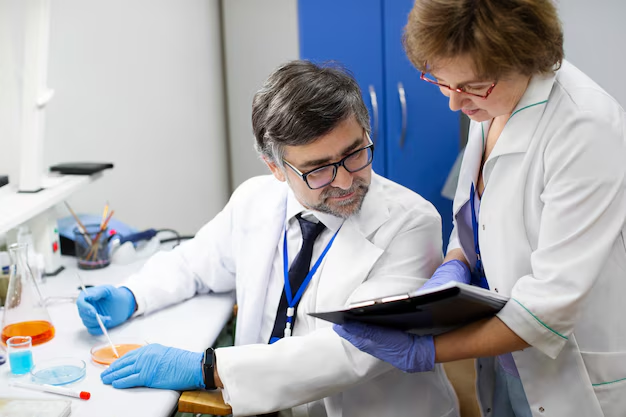Medical tests play a crucial role in diagnosing, monitoring, and preventing health conditions. They provide valuable insights into your health, enabling doctors to make informed decisions about your treatment. Understanding common medical tests and their importance can help you take control of your well-being and detect potential health issues early.
In this article, we will cover the most common medical tests, their purposes, and what to expect during these procedures.
Why Are Medical Tests Important?

- Early Detection: Early diagnosis can significantly improve treatment outcomes.
- Monitoring Health Conditions: Helps track the progress of ongoing medical conditions.
- Preventive Care: Routine tests can identify risk factors before symptoms appear.
- Treatment Planning: Provides critical information for personalized treatment plans.
Types of Common Medical Tests

Medical tests can be broadly classified into the following categories:
- Blood Tests
- Imaging Tests
- Urine Tests
- Genetic Tests
- Cardiac Tests
- Infectious Disease Tests
- Cancer Screening Tests
Let’s explore each type in detail.
1. Blood Tests
Blood tests are one of the most commonly performed medical procedures. They provide information about your overall health and detect a variety of conditions.
Common Blood Tests
- Complete Blood Count (CBC): Evaluates overall health and detects infections, anemia, and other disorders.
- Lipid Panel: Measures cholesterol levels and assesses heart disease risk.
- Blood Glucose Test: Diagnoses and monitors diabetes.
- Liver Function Test: Evaluates liver health.
- Kidney Function Test: Checks how well your kidneys are working.
Importance of Blood Tests
- Detects infections and diseases.
- Monitors organ function.
- Evaluates nutritional deficiencies.
2. Imaging Tests
Imaging tests use technology to create detailed images of the inside of your body, aiding in the diagnosis and treatment of various conditions.
Common Imaging Tests
- X-ray: Detects fractures, infections, and lung issues.
- Ultrasound: Monitors pregnancies and assesses organ function.
- MRI (Magnetic Resonance Imaging): Provides detailed images of organs, muscles, and tissues.
- CT Scan: Identifies tumors, internal injuries, and blood clots.
Importance of Imaging Tests
- Diagnoses medical conditions accurately.
- Guides treatment decisions.
- Monitors the effectiveness of treatments.
3. Urine Tests
Urine tests help detect signs of diseases and infections affecting the kidneys, urinary tract, and other organs.
Common Urine Tests
- Urinalysis: Checks for infections, kidney disease, or diabetes.
- Urine Culture: Identifies bacterial infections.
- Pregnancy Test: Detects pregnancy by measuring hormone levels.
Importance of Urine Tests
- Detects urinary tract infections (UTIs).
- Monitors kidney and liver health.
- Diagnoses metabolic disorders.
4. Genetic Tests
Genetic tests examine DNA to detect genetic conditions or determine a person’s risk for developing specific diseases.
Common Genetic Tests
- Carrier Screening: Identifies carriers of genetic disorders.
- Prenatal Genetic Testing: Detects genetic conditions in unborn babies.
- Ancestry DNA Test: Explores family heritage and genetic traits.
Importance of Genetic Tests
- Helps in early diagnosis of genetic disorders.
- Informs family planning decisions.
- Personalizes medical treatments.
5. Cardiac Tests
Cardiac tests evaluate the health of your heart and detect conditions such as heart disease or arrhythmias.
Common Cardiac Tests
- Electrocardiogram (ECG or EKG): Measures electrical activity of the heart.
- Echocardiogram: Uses ultrasound to create images of the heart.
- Stress Test: Evaluates heart function under physical stress.
Importance of Cardiac Tests
- Diagnoses heart disease early.
- Monitors heart function.
- Prevents cardiovascular events.
6. Infectious Disease Tests
These tests detect infections caused by bacteria, viruses, fungi, or parasites.
Common Infectious Disease Tests
- COVID-19 Test: Detects the presence of the virus.
- HIV Test: Diagnoses HIV infection.
- Strep Test: Identifies streptococcal infection.
Importance of Infectious Disease Tests
- Prevents the spread of infectious diseases.
- Enables early treatment.
- Supports public health initiatives.
7. Cancer Screening Tests

Cancer screening tests detect cancer early, often before symptoms appear.
Common Cancer Screening Tests
- Mammogram: Screens for breast cancer.
- Pap Smear: Detects cervical cancer.
- Colonoscopy: Screens for colorectal cancer.
- Prostate-Specific Antigen (PSA) Test: Detects prostate cancer.
Importance of Cancer Screening Tests
- Detects cancer early when it’s most treatable.
- Reduces the risk of cancer progression.
- Saves lives through early intervention.
Also Read : Exploring Alternative Medical Therapies: A Comprehensive Guide
Conclusion
Understanding common medical tests and their importance empowers you to make informed decisions about your health. Regular check-ups, preventive screenings, and timely diagnostic tests are essential for early detection, effective treatment, and better health outcomes. Consult with your healthcare provider to determine which tests are appropriate for you based on your age, gender, and medical history.
FAQs
1. How often should I have a medical test?
The frequency of medical tests depends on your age, medical history, and risk factors. Your doctor can recommend a personalized schedule.
2. Are medical tests always accurate?
While medical tests are generally reliable, false positives and false negatives can occur. Additional testing may be needed for confirmation.
3. Do medical tests have any risks?
Most medical tests are safe. However, some imaging tests may involve exposure to radiation or require contrast dyes that can cause allergic reactions.
4. Can I refuse a medical test?
Yes, you have the right to refuse any test. Discuss the potential risks and benefits with your healthcare provider before making a decision.
5. What should I do if my test results are abnormal?
Abnormal results don’t always indicate a serious problem. Your doctor will review your results, possibly recommend further tests, and develop a treatment plan if necessary.

